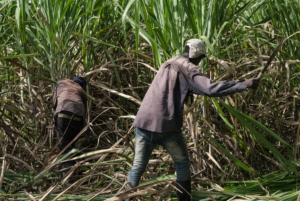Sugar is the most talked about issue at the moment due to statements issued by U.S. Customs and Border Protection (CBP) officials about the detention of shipments of raw sugar and sugar-based products produced by the country. In Rotten shows how this was previously reported.
There are many people who don’t care what they eat, let alone where it comes from, but there is another group that is interested in knowing everything about what goes into their bodies.
The Netflix documentary called “Rotten” examines the journey that food takes and exposes the unpleasant truths about the mysterious power that manipulates what we eat and drink.
In “Rotten” we will be able to see the first in line in the production of certain staple foods and other problems such as over exploitation. We will also notice the mistreatment of the food sector and how it often benefits only the powerful.
This documentary makes a world tour of trade at scale, such as the United States, Spain, Dominican Republic, Mexico, Chile and others. We will find foods such as water, avocado, honey, chocolate and sugar.
Hoy newspaper reports that the report has two seasons of six episodes in each of them. In season two, episode four talks about sugar. It mentions how the workers are exploited, the ecosystems invaded and the political games played in the production of sugar.
The Dominican Republic is mentioned in the series because of the exploitation of the workers and the lack of pension for being undocumented. Now let’s remember that problems are being mentioned with Central Romana, due to the fact that the United States prohibited the entry of sugar, for alleged forced labor.
Central Romana is an agro-industrial and tourism company, which has been in the country for more than 100 years, it has investments in manufacturing, tourism and agro-industry. It is owned by the Fanjul family.
According to the series, growing sugar is like printing money and businessmen want to produce as much as possible. They also add that the sweetest thing about sugar is selling it.
Currently, 170 million tons of sugar are consumed each year. They also explain the mistreatment suffered by sugar workers.
They tell of the bilateral agreements that brought Haitians to the Dominican Republic. Also how in 2013 it was found how forced child labor violated labor law. But according to the series, the U.S. government ignored the report.
They also clarified that what U.S. Customs said does not reflect the practices that characterize them.
Finally, they added, “We hold our heads high because we know that for more than a century we have acted correctly, facing challenges with determination and consistently managing their resolution.
Learn More: CULTURE

